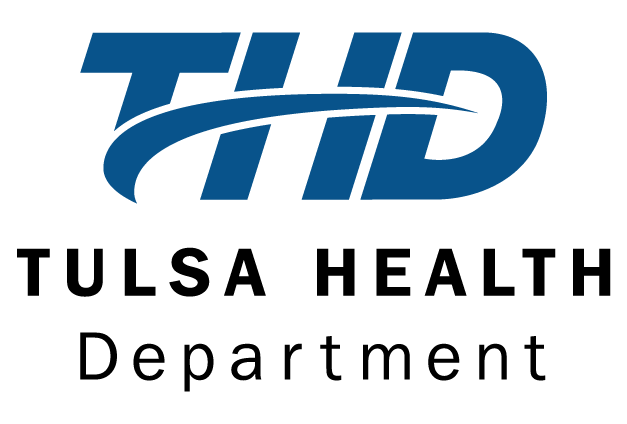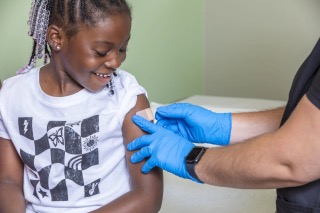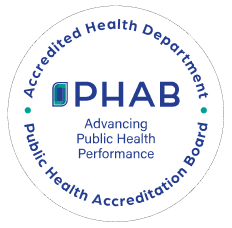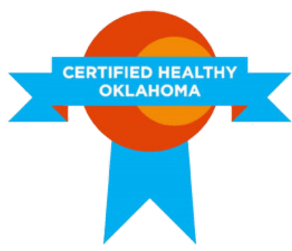Kindest Readers,
Happy Pride Month from the Epidemiology Program at the Tulsa Health Department! As we celebrate the progress and achievements of the LGBTQ+ community, it’s also a vital time to focus on health and well-being. Here at the Tulsa Health Department, we take pride in supporting the health of our LGBTQ+ community by raising awareness about infectious diseases, promoting healthy behaviors, and encouraging preventive measures.
The Importance of LGBTQ+ Health
Health disparities in the LGBTQ+ community are often rooted in stigma, discrimination, and lack of access to care. This can result in higher rates of certain infectious diseases and mental health issues. Understanding these unique challenges allows us to tailor our public health efforts and provide the best possible care.
Key Infectious Diseases Affecting the LGBTQ+ Community
- HIV/AIDS: While significant progress has been made, HIV remains a critical issue, particularly among gay and bisexual men. Regular testing, pre-exposure prophylaxis (PrEP), and safe sex practices are essential in preventing transmission.
- Sexually Transmitted Infections (STIs): STIs such as syphilis, gonorrhea, and chlamydia disproportionately affect the LGBTQ+ community. Routine screening and early treatment are crucial. Using condoms and dental dams can significantly reduce the risk of transmission.
- Hepatitis: Hepatitis A, B, and C can be more prevalent in the LGBTQ+ community due to certain risk factors. Vaccination (for Hepatitis A and B) and regular screenings are important preventive measures.
- Human Papillomavirus (HPV): HPV is a common infection that can lead to cancers such as cervical, anal, and oropharyngeal cancers. The HPV vaccine is recommended for everyone through age 26, and for some adults aged 27 through 45 based on individual risk factors.
Behavioral Health and Preventive Measures
- Mental Health: The LGBTQ+ community faces higher rates of depression, anxiety, and suicidal ideation. It’s crucial to seek support from mental health professionals who are culturally competent and sensitive to LGBTQ+ issues.
- Substance Use: Higher rates of tobacco, alcohol, and substance use are observed within the LGBTQ+ community. Engaging in supportive counseling and substance use programs can be beneficial in managing and overcoming these challenges.
- Routine Health Care: Regular check-ups with healthcare providers who are knowledgeable about LGBTQ+ health can help in early detection and management of health issues. Don’t hesitate to discuss your sexual orientation and gender identity with your healthcare provider to receive the most personalized care.
Taking Action: Prevention and Education
- Get Vaccinated: Stay up to date with vaccines, including those for Hepatitis A and B, HPV, and the annual flu shot.
- Regular Testing: Regular screenings for HIV, STIs, and Hepatitis are key. Early detection leads to better outcomes and reduces the risk of transmission.
- Safe Practices: Practice safer sex by using condoms and dental dams, and consider PrEP if you’re at high risk for HIV.
- Mental Health Support: Seek out mental health professionals who understand LGBTQ+ issues. Join support groups and engage in community activities to foster a sense of belonging and support.
- Educate Yourself and Others: Knowledge is power. Stay informed about health issues and share information with your community. Support and advocate for inclusive health policies and practices.
Our Commitment
At the Tulsa Health Department, we are dedicated to providing inclusive and comprehensive care for the LGBTQ+ community. This Pride Month, and every month, we celebrate diversity and strive to create a safe and supportive environment for everyone.
Take pride in your health—we do! Let’s work together to ensure a healthier, happier future for the LGBTQ+ community. For more information, resources, and support, visit our website or contact the Epidemiology Program at the Tulsa Health Department.
Happy Pride!
With Pride and Health, The Epidemiology Program Tulsa Health Department






